第29章 Preamble On The Peculiarities Of All Metaphysical
It gradually drops these limits, and what is there to prevent it, as it has quite freely derived its principles from itself? And then it proceeds first to newly-imagined powers in nature, then to beings outside nature; in short to a world, for whose construction the materials cannot be wanting, because fertile fiction furnishes them abundantly, and though not confirmed, is never refuted, by experience. This is the reason that young thinkers arc so partial to nietaph3,sics of the truly dogmatical kind, and often sacrifice to it their time and their talents, which might be otherwise better employed. But there is no use in trying to moderate these fruitless endeavors of pure reason by all manner of cautions as to the difficulties of solving questions so occult, by complaints of the limits of our reason, and by degrading our assertions into mere conjectures. For if their impossibility is not distinctly shown, and reason's cognition of its own essence does not become a true science, in which the field of its right use is distinguished, so to say, with mathematical certainty from that of its worthless and idle use, these fruitless efforts will never be abandoned for good. Sect. 36. How is Nature itself possible? This question -- the highest point that transcendental philosophy can ever reach, and to which, as its boundary and completion, it must proceed-properly contains two questions. First: How is nature at all possible in the material sense, by intuition, considered as the totality of appearances; how are space, time, and that which fills both -- the object of sensation, in general possible? The answer is: By means of the constitution of our Sensibility, according to which it is specifically affected by objects, which are in themselves unknown to it, and totally distinct from those phenomena. This answer is given in the Critique itself in the transcendental Aesthetic, and in these Prolegomena by the solution of the first general problem. Secondly: How is nature possible in the formal sense, as the totality of the rules, under which all phenomena must come, in order to be thought as connected in experience? The answer must be this: it is only possible by means of the constitution of our Understanding, according to which all the above representations of the sensibility are necessarily referred to a consciousness, and by which the peculiar way in which we think (viz., by rules), and hence experience also, are possible, but must be clearly distinguished from an insight into the objects in themselves. This answer is given in the Critique itself in the transcendental Logic, and in these Prolegomena, in the course of the solution of the second main problem. But how this peculiar property of our sensibility itself is possible, or that of our understanding and of the apperception which is necessarily its basis and that of all thinking, cannot be further analyzed or answered, because it is of them that we are in need for all our answers and for all our thinking about objects. There are many laws of nature, which we can only know by means of experience; but conformity to law in the connection of appearances, i.e., in nature in general, we cannot discover by any experience, because experience itself requires laws which are a priori at the basis of its possibility. The possibility of experience in general is therefore at the same time the universal law of nature, and the principles of the experience are the very laws of nature. For we do not know nature but as the totality of appearances, i.e., of representations in us, and hence we can only derive the laws of its connection from the principles of their connection in us, that is, from the conditions of their necessary union in consciousness, which constitutes the possibility of experience. Even the main proposition expounded throughout this section - - that universal laws of nature can be distinctly known a priori -- leads naturally to the proposition: that the highest legislation of nature must lie in ourselves, i.e., in our understanding, and that we must not seek the universal laws of nature in nature by means of experience, but conversely must seek nature, as to its universal conformity to law, in the conditions of the possibility of experience, which lie in our sensibility and in our understanding.